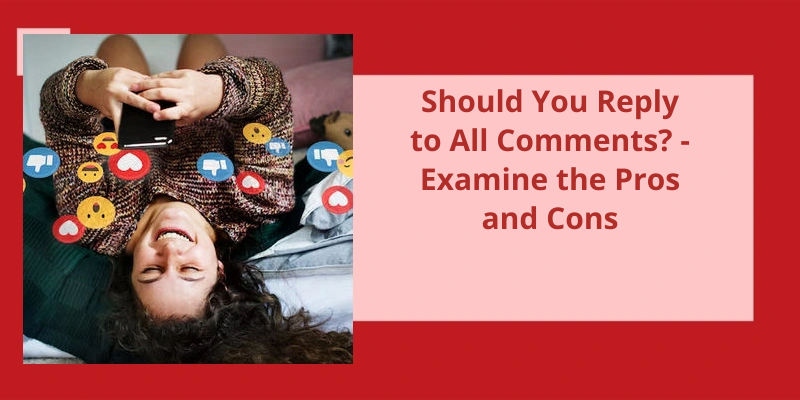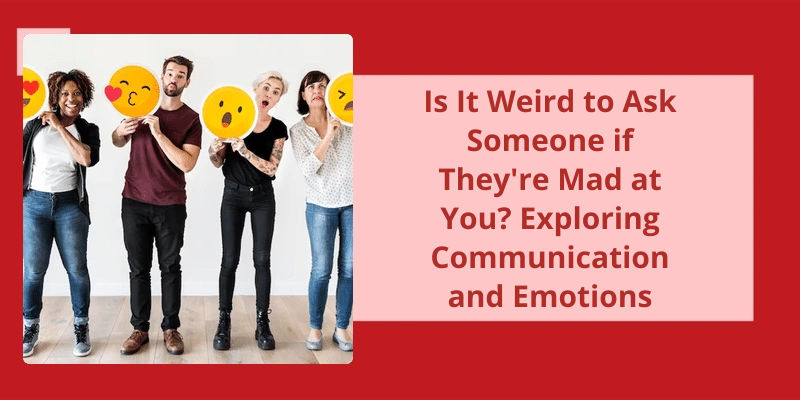Engaging with your target audience is crucial in today's digital landscape, and one effective way to do so is by actively replying to all comments. By taking the time to respond to every comment, you not only boost your engagement rate but also enhance the visibility of your content. Furthermore, embracing this practice can help you create a positive impression among your audience, showcasing your dedication and commitment to providing a personalized experience. Despite the clear advantages, there are also some potential cons to consider. It can be time-consuming to reply to each and every comment, especially as your following grows. Additionally, not all comments may warrant a response, as some may be irrelevant or even negative. Weighing the pros and cons is essential in determining if responding to all comments aligns with your goals and resources.
Should I Reply to All Comments on Instagram?
Should I reply to all comments on Instagram? Do I Have to Respond to Every Comment? The short answer is: Yes, because it can do wonders for building community on social media, and your followers expect it. Responding to every comment shows your followers that you value their thoughts and opinions, and that you’re actively engaged with the community youve built. By replying to comments, youre fostering a sense of inclusion and making your followers feel heard and appreciated. This can help strengthen the bond between you and your audience, ultimately leading to increased loyalty and engagement.
Furthermore, responding to comments can also drive more organic engagement on your posts. When you reply to a comment, it signals to other users that you’re actively participating in the conversation, which can encourage them to join in as well. This can lead to a snowball effect, with more and more people getting involved in the comments section of your posts. As a result, your overall engagement rate may rise, attracting even more attention to your content and potentially increasing your reach.
Best Practices for Responding to Comments to Enhance Engagement and Build Relationships With Followers
- Thank the person for their comment.
- Show appreciation for their opinion or perspective.
- Respond promptly to demonstrate attentiveness.
- Keep responses concise and to the point.
- Offer additional information if it adds value to the conversation.
- Address any concerns or questions raised in the comment.
- Avoid getting defensive or engaging in arguments.
- Show empathy and understanding, even if an opinion differs.
- Encourage further discussion or ask open-ended questions.
- Use a friendly and conversational tone in your responses.
- Remember to proofread and edit your comments for clarity.
- Engage with other commenters and encourage a sense of community.
- Monitor comments regularly and respond in a timely manner.
- Follow any specific guidelines or policies set by your platform.
- Consider using humor or wit when appropriate to add personality.
- Show gratitude and thank commenters for their continued support.
- End the response with a positive note or call to action if applicable.
When it comes to online interactions, the question of whether or not it’s rude to not reply to comments often arises. While it’s generally considered good practice to respond to comments, there are situations where it may be acceptable to refrain from doing so. This article explores the etiquette of responding to comments, emphasizing the importance of acknowledging and engaging with your audience while acknowledging the potential exceptions that warrant no response.
Is It Rude to Not Reply to Comments?
Is it rude to not reply to comments? Some may argue that it is, as people like to be acknowledged and appreciated for taking the time to leave a comment. It shows that you value their input and fosters a sense of community. Therefore, it’s generally advisable to respond to comments whenever possible. However, there are a few situations where not replying may be excusable.
One such situation is when a commenter is being abusive or using your comment section to spread spam. In these cases, engaging with the individual may only encourage their negative behavior or validate their spamming attempts. It’s best to ignore these comments and, if necessary, take appropriate actions to block or report the user to maintain a positive and safe environment for other readers.
Another exception could arise if you receive an overwhelming amount of comments, making it impractical to respond to each one individually. In such cases, you can acknowledge the comments collectively by adding a general thank you note or by responding to the most relevant or interesting points made by multiple commenters. This allows you to express gratitude without getting overwhelmed by the sheer volume.
That being said, not responding to comments should never become a habit or be done out of laziness. Engaging with your audience builds trust and loyalty, as it shows that you value their participation and are willing to engage in a dialogue. Moreover, responding to comments can provide opportunities for further discussion, clarifications, and even content ideas.
The Benefits of Replying to Comments on Social Media Platforms
Replying to comments on social media platforms offers several benefits. Firstly, it shows that you’re engaged with your audience and value their input. By responding, you can build a sense of community and strengthen relationships with your followers.
Secondly, replying to comments allows you to provide additional information, clarify any misunderstandings, or address any concerns raised by your audience. This promotes transparency and helps establish your credibility as a brand or individual.
Furthermore, responding to comments gives you the opportunity to turn negative feedback into a positive outcome. By addressing concerns or complaints promptly and respectfully, you demonstrate your commitment to customer satisfaction and may even be able to convert dissatisfied individuals into loyal supporters.
Lastly, actively engaging with comments can boost your visibility and reach. When you reply to comments, it increases the likelihood of users returning to your page, contributing to higher engagement rates and potentially attracting new followers.
Source: 5 Rules for Responding to Comments – Startup Grind
Many people struggle with the question of whether it’s acceptable to not reply back to messages, but the truth is, it’s perfectly fine to choose not to respond. You’ve the freedom to decide how you want to use your time and energy. However, it’s important to consider the potential consequences of not replying and whether it aligns with your values and the expectations of the person reaching out to you.
Is It Okay Not to Reply Back?
Is it okay not to reply back? You’re under no obligation to do so. However, think of the consequences whether you reply or not.
On one hand, replying to all comments shows appreciation for the engagement and can help foster a sense of community. It demonstrates that you value your audiences input and are willing to engage in conversation. This can lead to increased loyalty and a more engaged audience in the long run.
On the other hand, replying to all comments can be time-consuming and may not be feasible, especially if you’ve a large following or receive a high volume of comments. It can also be overwhelming to constantly be in a state of response, which can lead to burnout. Additionally, some comments may not warrant a response, such as spam or offensive remarks, in which case it may be better to ignore them altogether.
It can enhance your connection with your audience and build a sense of community, but it can also be time-consuming and overwhelming. Consider your goals and resources when deciding whether to reply, and remember that it’s okay to prioritize your own well-being and balance. Ultimately, the choice is yours.
Replying to comments on TikTok not only builds trust and personal relationships with your customers, but it also has a long-term positive influence on your videos’ performance. While it may not directly boost views for a specific video, it encourages more people to engage with your brand, leading to increased interaction and potential growth in the future.
Does Replying to Comments on TikTok Help Views?
Replying to comments on TikTok can be a valuable strategy for creators as it helps to foster a sense of community and engagement with their audience. While it may not directly boost views for a specific video, it does have the potential to generate more interest and encourage others to interact with your content. By taking the time to respond to comments, you’re showing that you value and appreciate your viewers feedback, which can create a positive impression and encourage them to continue engaging with your content in the future.
Moreover, replying to comments allows for a more personalized interaction with your audience. It shows that you aren’t just a faceless entity posting videos, but a real person who cares about their viewers. This can help build trust and strengthen the relationship between you and your audience, which can have a long-term positive impact on your videos performance. When viewers feel heard and valued, they’re more likely to become loyal followers and advocates for your content, which can ultimately result in increased views and engagement.
By addressing any concerns or misunderstandings directly, you’ve the opportunity to provide clarification and ensure that your message is properly understood. This can help mitigate any potential negative reactions or misinformation, and allow you to maintain a more positive and constructive conversation surrounding your videos.
One of the main concerns is the time and effort it takes to respond to every comment. If your videos receive a large number of comments, it can be challenging to keep up with the influx of responses. This can potentially lead to a high workload and take away from the time you could be spending on creating new content.
Additionally, responding to comments may also open the door for negative and unconstructive feedback. While it’s important to address any valid concerns or criticisms, engaging with trolls or constantly defending yourself can be draining and unproductive. It’s essential to have a balance and prioritize which comments are worth responding to and which are better left unaddressed.
Conclusion
On one hand, responding to all comments shows your audience that you value their engagement and are willing to engage in conversation with them. This can lead to increased brand loyalty and a sense of community among your followers. It also provides an opportunity for you to address any questions, concerns, or feedback that may arise from the comments. On the other hand, responding to all comments can be time-consuming and may not always be necessary. Some comments may simply be spam or irrelevant, and responding to every single one may come across as insincere or overwhelming.






